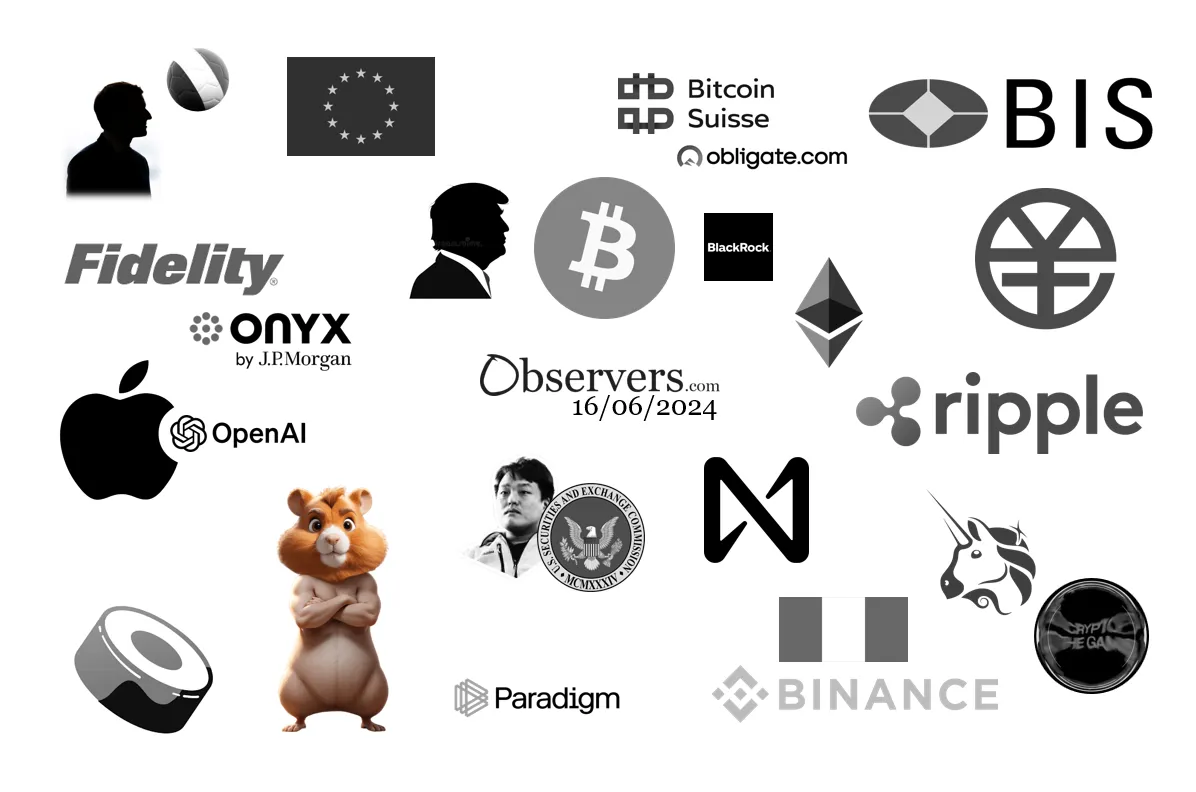
Summer has yet to start in Europe, but temperatures are already going up the roof. Last week's European Parliament elections turned the tables on EU politics, even if not as drastically as expected.
French President Emmanuel Macron called for snap elections following his party's defeat to Marine Le Pen's National Rally. The decision has put the country into a frenzy, as the results will likely reshape national politics and deepen the divide between left and right-wing, and all that, just two weeks before the highly anticipated start of the Paris Olympics.
France's second-favorite national sport after politics, football, is also contributing to the country's national heart-related issues. Expectations are high as the national team is a favorite in this year's Euro Cup, which kicked off in neighboring Germany on Friday.
While Europe was the political and sports epicenter of the world this week, Australia was the main stage for crypto affairs.
Iggy Azalea's MOTHER token reached new highs in price and popularity; on June 11, regulation entered into force forbidding online casinos to accept crypto as a means of payment; and the Australian Securities Exchange (ASX) announced that the country's first spot Bitcoin exchange-traded fund would launch on June 20.
ASX news comes at the end of a week marked by major outflows in U.S. BTC ETFs. The draining felt particularly defeating, as the funds had been performing exceptionally well the week before.
As the presidential campaign unfolds, Donald Trump has made a U-turn on his stance on crypto, going from calling it a "scam" a couple of years ago to wanting to build a "crypto army." The former president's remarks regarding crypto mining fell short of what the industry leaders wanted to listen to.
As the SEC continues to pursue a tech-conservative approach, U.S. customers are often excluded from new DeFi trends, such as yield-bearing stablecoins. Ethena, the company behind the synthetic dollar USDY, has recently partnered with Solv Protocol to offer 10 to 15% APY to Bitcoin owners. To protect themselves against possible lawsuits, they will not launch on U.S. shores.
Following Trump's remarks, the Apple developers' conference was the most attention-grabbing event this week. Late to the AI party, the tech company announced it was partnering with OpenAI to integrate artificial intelligence into its products, giving Sam Altman's company an even bigger share of the AI market.
Concerns over the unequal power of a few large tech companies over large language models are fueling blockchain projects to create community-governed alternatives. Near Protocol has shifted gears and focused entirely on building an ecosystem of "people-owned" AI.
Near joins Ripple in fighting the incumbent market powers. The recent decision to jump on the RWA fast train is a challenge to major established finance players who are taking considerable steps to ensure that the trillions that can be made in the upcoming market will go through their centralized channels and close-door decision rooms.
Paradigm is hands-on in building a technology environment where power is less concentrated. The investment firm, which has previously backed some of the most promising decentralized projects, such as UniSwap and Optimism, has recently raised $850 million to fund early-stage crypto and blockchain ventures.
The efforts in fighting the system might not be creating a different one. On June 11, decentralized exchange SushiSwap changed its governance model from the industry-standard DAO to a novel way called Labs, which has sparked centralization concerns within its community.
Uniswap, another major player in decentralized exchanges, is playing less controversial power games. The company acquired the Twitter viral "Crypto: The Game" as part of a strategy to attract more users to its platform and Web3.
On the same front, Solana and Base made a significant advancement this week. Base launched a Smart Wallet that provides a simplified webpage-only onboarding process with device-native authentication steps.
Circle launched developer-focused programmable wallets on Solana, but the news was clouded by the sandwich attacks some Solana validators performed, which led to their expulsion from the Solana Foundation delegation program.
Now that developers have noticed Telegram's massive potential as an automatic door bringing in users from Web2 to Web3, blockchain games and apps on the messaging platform are popping up like mushrooms in Scotland's damp woodlands. The Notcoin feel-alike game Hamster Kombat has already garnered the attention of almost 150 million players, and the project's token will soon be launched on the TON network.
A fan of online games but unable to play them at the moment is Canadian "Crypto King" Aiden Pleterski. He is currently sitting in jail for running a Ponzi Scheme and using investors' money to live a lavish lifestyle that included jet rides, luxury cars, and expensive in-game assets on Steam. While Ferraries can quickly be apprehended, authorities are having trouble getting to Pleterski's virtual knives and skins collection.
However, there are several activities one can do in prison, one of which is to accept responsibility for wrongful actions. This week, Du Kwon, founder of Terraforms Labs, tried it when he agreed to pay roughly $204.3 million to settle the SEC's fraud allegations relating to the Terra/Luna stablecoins fiasco.
There are things you can do in prison and things that prison can do to you. For Binance executive Tigran Gambaryan, who has been locked up in a Nigerian jail since April due to tax charges that were dropped earlier this week, prison is putting his life at risk.
Despite countries like Nigeria and the U.S. still disagreeing on how to regulate crypto, most countries have figured out their strategy to take the most advantage of blockchain technology.
In Observers' Banking and CBDC Weekend Roundup, we discuss BIS findings that in 2023, central banks advanced more on the wholesale CBDC scene. The EU, however, is progressing lower than expected, while China is roaming further much faster.

